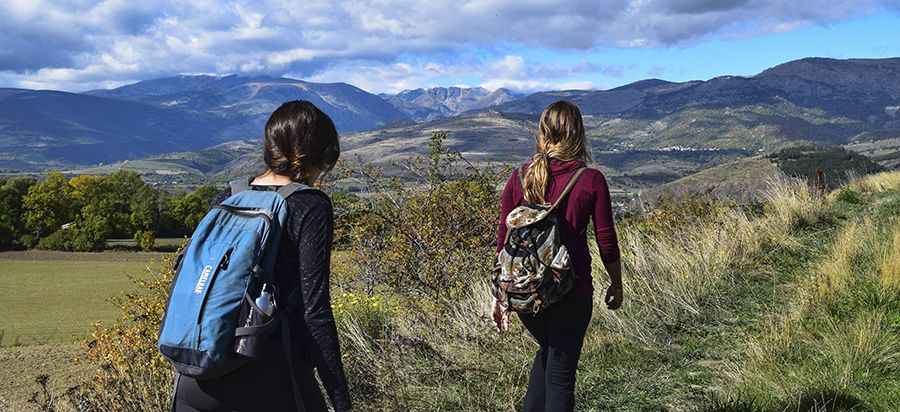How To Prepare For Your First Challenging Hike in the USA
Spending time out in nature is good for the soul and good for the body. The fresh air calms your mood, and the challenge of a hike pushes your muscles and strengthens your body. Before you go out on your first challenging hike, be sure to follow these prep tips for a successful outdoor adventure.

Start With an Easy Trail
On your first hike of the season or your life, don't pick the toughest trail. Start with an easy hike. Consider your fitness level, your health, the weather, changes in elevation and difficulty of the terrain. Pace yourself and enjoy nature. Hiking is not a race. Take your time and listen to your body.
Check the Weather Forecast
Depending on where you're hiking, the weather could be fairly predictable, or it could change on a dime. Check the weather forecast the day before your hike and a few hours before your hike. Use the National Weather Service weather forecast. Make sure that your smartphone is set up to get weather alerts for the hiking trail's zip code.
Provide Your Itinerary to a Friend
Tell a friend where you're going, how long you'll be and which route you're taking. If you don't return within a reasonable length of time, your friend will know to send help or report you missing. If you're running late, let your friend know. Once you return to civilization, check in with your friend.
Pack Essential Supplies
Load your backpack with a few essential supplies. These include a printed map, a sun hat, sunscreen, sunglasses, a first aid kit, thermal blanket, gloves, whistle, hat, pocket knife, compass, fire starter, matches, extra snacks and a head lamp or flashlight. If you get lost or hurt, these will help you stay safe and comfortable until help arrives. If you plan on a longer stay make sure you have some lightweight sleeping bags that are easy to carry.
Choose Functional Clothes Over Fashionable Ones
Leave your skinny jeans, flip flops and tiny tee shirt at home. When you're hiking, you need breathable, comfortable clothes. Pick fabrics that wick moisture away from your body. Bamboo, polyester and wool are better choices. For a hike during cold weather, choose wool socks and a wool hat for warmth and moisture-wicking properties.
Stay Hydrated and Pick Nutritious Food
Drink water before, during and after your hike. No matter what the weather is, your body will use more water when you're hiking than if you were taking a stroll or just sitting still outdoors. Consider a wearable water pack or bring your own reusable water bottles. It's also important to eat nutritious food before and after your hike. Before your hike, pick whole grains and lean proteins, such as a nut butter sandwich on whole-grain bread or a pack of beef jerky and some dehydrated fruit. Have a banana, too. Its potassium will lessen muscle cramps.
Get A Good Night’s Rest
A great hike may start the night before with a good night’s sleep. Ensure you get at least the recommend 8 hours of sleep on a good mattress, or one specifically built for back pain relief. It is best if you can rest at home, in a space you are comfortable with, however, if you are traveling for your hike ensure you have a comfortable room in a quiet area. You will need your energy in the morning.
Respect Nature
When you're out in nature, only leave your footprints behind. Note that most trails don't have trash cans. Take your wrappers and other trash with you. To show how much you love the outdoors, consider bringing a small trash bag and picking up other people's litter on your return to your starting point. Abide by the trail rules, respect wildlife, avoid picking the wildflowers and keep noise to a minimum.